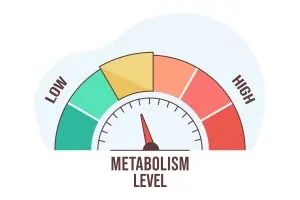Risks of Ozempic and Eating Disorders It Can Cause
Ozempic’s active ingredient, semaglutide, belongs to the class of GLP-1 (glucagon-like peptide-1) receptor agonists. The drug’s primary purpose is type 2 diabetes management and, in some cases, approved weight management.
However, its growing popularity on social media and widespread use as a so-called “weight-loss drug” has raised serious concerns. Below, I’ve summarized what can happen, supported by scientific evidence.

Potential Negative Effects

Triggering or worsening eating disorders
In some individuals, semaglutide reduces food cravings by suppressing appetite and increasing satiety. While this may sound beneficial, it can actually lead to harmful outcomes for those with a history of anorexia nervosa, bulimia, or binge eating disorder. It may reinforce restrictive behaviors, meal skipping, fear of food, or obsessive thinking.
Additionally, rapid weight loss caused by the drug can harm body image, mood, and psychological resilience. Insufficient calorie intake may result in muscle loss and deterioration of bone health.
Signs of dependence or psychological addiction
By dampening the “food reward” system, Ozempic can diminish the natural enjoyment of eating. Over time, some individuals may come to rely solely on the drug’s appetite-suppressing effects — creating a psychological dependency.
Once the medication is stopped, the return of appetite can trigger anxiety, fear of regaining weight, and potentially lead to ongoing restrictive or unhealthy eating behaviors.
Physical and metabolic risks
Common side effects include nausea, vomiting, diarrhea, and indigestion. These can become more serious if hydration and electrolyte balance are not carefully maintained.
Some patients may also develop gastroparesis (delayed stomach emptying), which causes discomfort, bloating, and can disrupt normal eating patterns.
The long-term effects of semaglutide are not yet fully understood. Possible risks include adverse impacts on bone health, hormone regulation, and psychological well-being.
Additionally, there have been reports of serious health issues associated with Ozempic use. These include gastroparesis, also called stomach paralysis or delayed gastric emptying, intestinal blockage, vision loss, especially NAION (non-arteritic anterior ischemic optic neuropathy), and complications related to the gallbladder. Some claims also suggest potential effects on other organs, including the kidneys and pancreas. Although these reports are not definitive, it is important for patients to be aware of the possible risks and to seek advice from a healthcare professional if they notice any concerning symptoms.

Who Is at Higher Risk?
Individuals with a past history of eating disorders (anorexia, bulimia, binge eating).
Underweight or low-BMI individuals, especially when high doses of semaglutide are used.
Adolescents and young adults, whose body image, hormones, and psychological maturity are still developing.
People with existing psychological vulnerabilities, especially around self-image and self-worth.
Those using Ozempic without medical supervision, influenced by social media or celebrity endorsements, where dosage and follow-up are poorly controlled.

Alternative Treatments: Bariatric Surgery Options at Sanamentum
If the potential risks of drugs like Ozempic are concerning, Sanamentum offers surgical approaches that can provide lasting and more substantial effects. Of course, every surgery has its own risks, but with experienced surgeons and the right medical setting, the benefits can be significant.
Gastric Sleeve (Sleeve Gastrectomy) — A large portion of the stomach is removed to reduce capacity, helping patients feel full sooner and lowering the risk of overeating.
Gastric Bypass — Alters the digestive tract to both limit absorption and create early satiety.
Gastric Balloon — A non-surgical, temporary solution that reduces stomach capacity, with different risks compared to medication.
Gastric Botox — A less invasive, short-term option that slows stomach emptying but does not involve surgery.
At Sanamentum, these bariatric procedures are carried out according to international patient care standards, with experienced surgeons and comprehensive packages that include post-surgery follow-up.
Conclusion: Balance and Informed Choices
Ozempic and other GLP-1 medications may benefit some individuals — such as those who have struggled with traditional weight-loss methods and face metabolic health risks. However:
They are not universally safe or ideal solutions.
Potential eating disorders, psychological stress, and physical side effects must be carefully considered.
Anyone considering these medications should be monitored by a multidisciplinary team including an endocrinologist, dietitian, and mental health professional.
Surgical alternatives may offer more durable, long-term solutions for individuals facing obesity and related health challenges.

